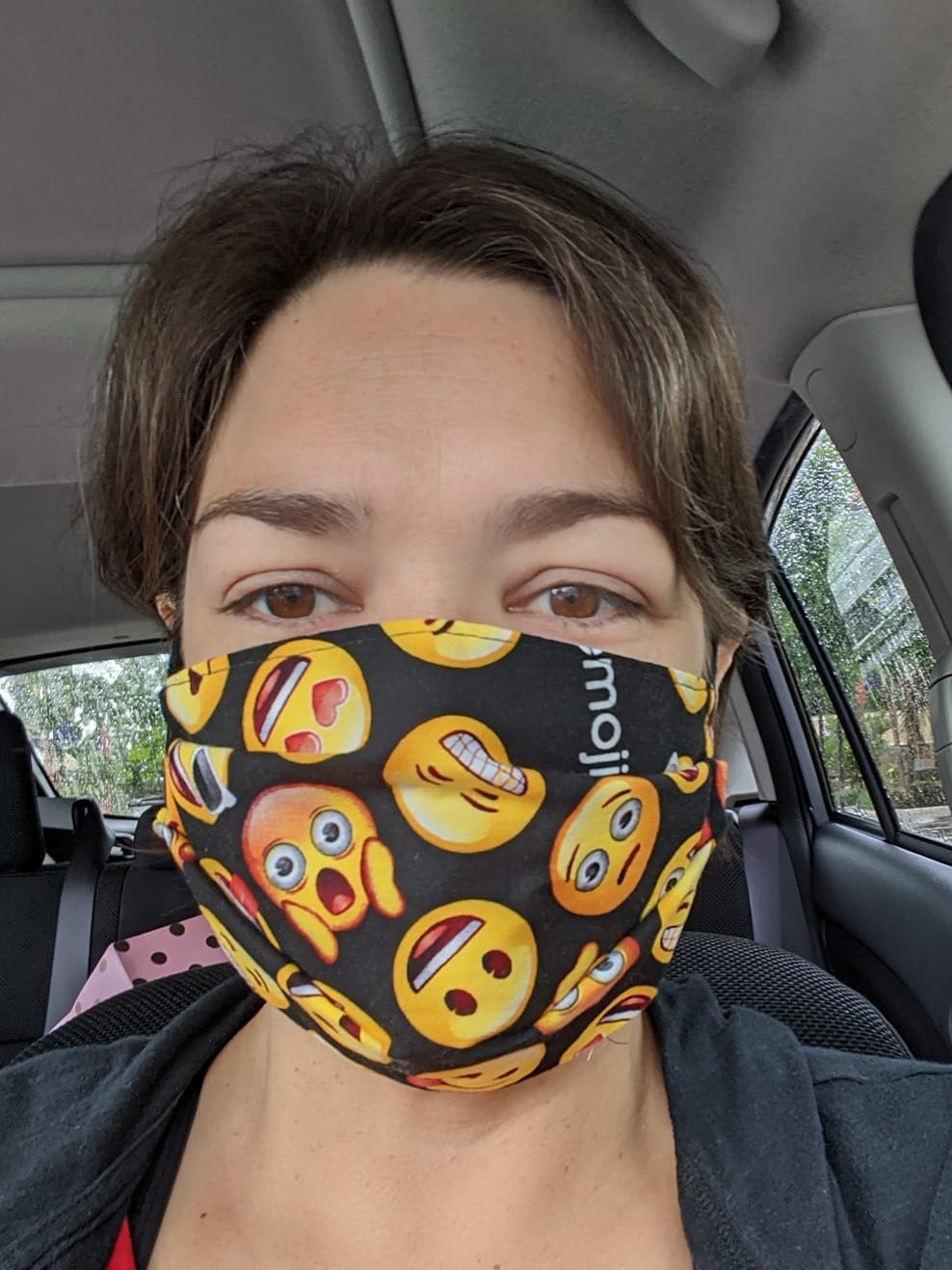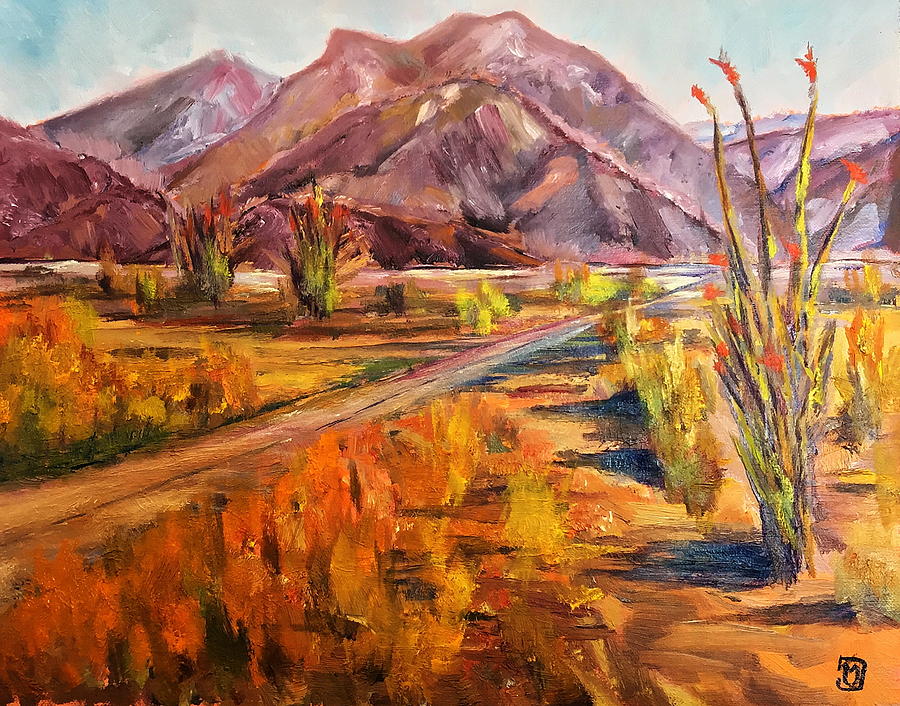Even when the sun is shining outside, the world can seem dark. That’s because almost everywhere we look, everything we read, everything we listen to, brings us bad news.
Right now, across the world there are eleven civil wars being fought. There are 19 countries dealing with terrorist insurgencies. There are two major interstate wars. There’s gang warfare not too far from here in Haiti, and it has a real impact on many of my coworkers and friends. This year there have been devastating natural disasters around the world–resulting in a loss of life, homes, and businesses that is hard to tally.
A hundred years ago, things like this happened around the world, but if it didn’t happen near you, you wouldn’t hear about it for months, if at all. Today, in our world of the 24-hour-news-cycle, our phones alert us about breaking news from places on earth we couldn’t point out on a map. Our phones constantly tell us that bad news is everywhere. The TV news highlights stories of crime, corruption, and war. They show us graphic images and videos of this bad news. Sometimes we can watch these horrors live.
So it seems like bad news is all there is. But…that’s because we are getting our news from the wrong source. Today, I’m here to tell you that despite all evidence otherwise, Good News reigns.
When you read the headlines and watch the news, what you see is based solely on earthly events, many of which are the result of selfish or evil actions. But headlines are not the whole story. They are never the whole story because life is not summed up by big, bad news. Whether or not this life is worth living is not based on human action or inaction.
Woven like an unbreakable golden thread through every crack and crevice in the always-messy, often-painful human story is goodness. Whether it’s visible to the distracted human eye or not, goodness is always present. I know this because the whole truth of what is happening on this earth is not the human story. We are part of something much bigger. First and always, what’s going on here is God’s story.
God was, is, and always will be about goodness. At the very beginning of time as we know it, “the earth was formless and empty, darkness was over [everywhere], and the Spirit of God was hovering over the waters.” There was a moment when God said, “Let there be light,” and there was light. God saw that the light was good, and he separated light from the darkness. God called the light “day,” and the darkness he called “night.” (Genesis 1:1-5)
God continued, joyfully creating a world teeming with life, which included human beings who would join him as loving caretakers of the earth and all that lived here. When he finished creating, God stepped back to survey everything he had made. He declared it all “very good.” (Genesis 1:31)
Goodness was the beginning. And life on earth, as God intended it, was supposed to stay good—to be bountiful and full of flourishing. But the people that God lovingly created and appointed as caretakers messed it up.
You see, God gave his people parameters to keep them on his path of goodness, but he also gave them freedom to choose. As we know, Adam and Eve disobeyed the only command God gave them, a command that was meant to protect them from more than they could handle.
Satan, God’s enemy, tempted them to sin by exploiting the sense of goodness and freedom God had given them: “You won’t die by eating the fruit God put in his garden,” the serpent said. “God knows that when you eat from it your eyes will be opened, and you will be like God, knowing good and evil.” (paraphrase Genesis 3:4-5)
God’s people—created from and for goodness—made the bad choice. They disobeyed God and it had devastating consequences. They were banished from the Garden of Eden, no longer perfectly in-step with God. Suddenly, they understood their vulnerability and weakness apart from God. They became self-conscious and insecure. They thrust themselves into a life shadowed by the curse of sin, which introduced things like toil and pain and fractured relationships (see Genesis 3:14-19). This was the first of many human-made cracks in the good foundation God had laid for his creation.
Current events are full of accounts of violence and war, abuse and corruption, disasters, death and destruction. The same was true two hundred years ago. The same was true 2000 years ago in Bible times. All you have to do is open the Bible, start reading, and you quickly encounter the same list of bad news. That’s because the brokenness in the human story today echoes all the way back to the Garden of Eden when Adam and Eve stepped beyond the bounds of God’s goodness.
Ever since the garden, humans in every age have been reliving the same basic story. God shows us the way. We go our own way. We try to do things by our own strength and savvy. But without God, we inevitably lead ourselves on a path to pain and brokenness and our headlines become bad news.
But here’s the Good News! In every age, in every reliving of this human story, God is present. God is steadfast. And long ago, shortly after Adam and Eve turned toward sin, God–moved by love for the people he created–reset the human story. He enacted a master plan to redeem this broken world. By this plan he would open up a way for us to receive good news, to escape the ravages of sin, and to be restored to a healed relationship with him and all creation. Listen to the plan…
Long ago God chose a man named Abraham and his tribe to be set apart as God’s own people. He entered into a covenant with Abraham and his descendants, promising to make them into a great nation and through them, bless all people on earth. (See Genesis 12:1-3; chapter 17.) Sounds like good news, right? All they needed to do was to faithfully listen to God and follow his ways.
And so The Great Redemption Plan was set in motion via this covenant. Abraham was faithful to God, though not perfectly so. He did sin along the way, but God always lovingly steered him toward the better way. The following generations were less faithful, but God stubbornly renewed his covenant with them again and again.
As time went on, God’s people–eventually called the Israelites–failed miserably at being faithful to God. Down the generations, though there were many faithful individuals, the Israelites brought about their own doom and despair. They made idols and worshiped other gods. They disobeyed many of God’s commands, sometimes doing terrible evil. They started unsanctioned wars. They committed acts of violence. They took advantage of vulnerable people. Many of their kings were corrupt, motivated by selfishness and a lust for power. It was a dark time.
When the Israelites sinned and broke the covenant, God was heartbroken and angry. God’s intention was that the Israelites would be like a beacon of light in the dark world, drawing other peoples to follow God. But with their astounding propensity to sin, their light for God was only a flicker. Something greater, brighter, something incorruptible was needed to bring The Great Redemption Plan to completion.
It seems like the Israelite story contained mostly dark headlines and bad news. But when you read carefully you see that Good News reigned. In the darkest period of the Old Testament—when the Kingdom of Israel had been invaded by foreign oppressors, God’s temple destroyed, and many Israelites had been taken to live in exile in foreign lands—Good News was proclaimed.
Through a prophet named Jeremiah, God reminded his people of his goodness and in his intentions. He told them, “I have loved you with an everlasting love; I have drawn you with unfailing kindness…I will gather my scattered people and will watch over [my people]like a shepherd…I will deliver and redeem you…I will turn your mourning into gladness; I will give you comfort and joy instead of sorrow” (paraphrase Jeremiah 31:1, 10-11, 13 NIV).
Through a prophet named Isaiah, this Good News was declared: “…the people walking in darkness have seen a great light…For to us a child is born, to us a son is given, and the government will be on his shoulders. And he will be called Wonderful Counselor, Mighty God, Everlasting Father, Prince of Peace. Of the greatness of his government and peace there will be no end” (Isaiah 9:1, 6-7 NIV).
When life seemed hopeless, God reminded people of his love. When they were tempted to despair, God promised them coming redemption and with it: gladness, comfort and joy. What a turn around! This life of goodness would come through a yet-to-be-born child who would one day reign with justice, might, and peace.
Hearing this Good News, God’s people waited and hoped. Many of God’s people continued to live in exile, challenged to faithfully follow God among peoples hostile to God’s ways. But still they hoped. And their hope in God’s Good News burned for generations, even as they fell subject to one pagan empire after another. Surrounded by bad news, they held tightly to God’s promise of the great light, the son who would be born to save them.
Hundreds of years passed and then Good News came again. God sent a messenger named Gabriel to a young woman named Mary. Gabriel told her, “The Lord is with you. You will conceive and give birth to a son, and you are to call him Jesus. He will be great and will be called the Son of the Most High. The Lord God will give him the throne of his father David, and he will reign over Jacob’s descendants forever; his kingdom will never end” (Luke 1:30-33).
Within the year, an angel of the Lord appeared to some shepherds watching their sheep in the fields. The angel announced: “I bring you good news that will [bring]great joy for all people. Today in the town of David, a Savior has been born to you; he is the Messiah, the Lord” (Luke 2:10-11).
On that day, which we call Christmas, God’s son Jesus was born. The final stage of The Great Redemption Plan began. Hope sparked in the people who saw the baby. They knew Jesus was God’s goodness and love in human form. So the shepherds praised God. A troupe of angels sang: “Glory to God in the highest heaven...” And Mary cradled her baby, treasuring all of this in her heart. (see Luke 2:13-14 and 19-20)
That baby grew into a man who became a traveling preacher. Jesus began his mission work quoting the prophet Isaiah. He stood up in the synagogue and read these words: “The Spirit of the Lord is on me, because he has anointed me to proclaim good news to the poor. He has sent me to proclaim freedom for the prisoners and recovery of sight for the blind, to set the oppressed free;to proclaim the year of the Lord’s favor” (Luke 4:18-19).
Everywhere Jesus went he boldly spread Good News. Jesus declared himself to be “the light of the world.” Saying,“Whoever follows me will never walk in darkness, but will have the light of life” (John 8:12). And then he proved he was the light by healing people. By his touch or just his word the blind could see and people crippled by disease could suddenly stand and walk!
Jesus said “I am the good shepherd; I know my sheep and my sheep know me…and I lay down my life for the sheep.I have other sheep that are not of this sheep pen. I must bring them also” (John 10:14-16). And he revealed his goodness by serving, forgiving, and calling to himself all kinds of lost people. He called the humble people in society like fishermen, women, and children. He called outcasts like tax collectors, half-breed Samaritans, and Roman soldiers. He made room for all people living in despair to come into his light.
Jesus declared that he was “the way, the truth, and the life” (John 14:6-7). The ultimate proof of his goodness would be sacrificing his life on a cross. In his death he would defeat the power of sin and death. And by the power of God, he would be resurrected once again to life, opening the gates to eternal life for all who would repent of their sin and believe in Jesus. (See John 11:25-26)
Friends, because of Jesus, Good News reigns—even in a world that seems saturated with bad news.
Because of Christmas, God’s Good News has spread to every generation.
Because Immanuel, Good News has traveled to every tribe and continent.
Because a baby was born 2000 years ago in a tiny town named Bethlehem, Good News is now sung in a thousand languages.
Yes, we live in a world that seems dark. But take comfort in this: bad news is for a time; Good News is for eternity.
Yes, the headlines in our world are depressing. There’s bad news on a global scale and there’s bad news in our individual lives. But I hope you can find joy in this: Jesus, the fullness of God’s goodness, has come to right every wrong. To forgive every sin. To break every chain. To heal all the brokenness in the world, and in you.
In the beginning was Goodness. Goodness was with God, and Goodness was God. Jesus was with God in the beginning. Through him all things were made. In him was life, and that life was the light for all people. Jesus—the Son of God—thee embodiment of Good News—he shines in the darkness, and the darkness will never overcome it. (See Genesis 1:1-5 and John 1:1-5)
Good News Reigns!






